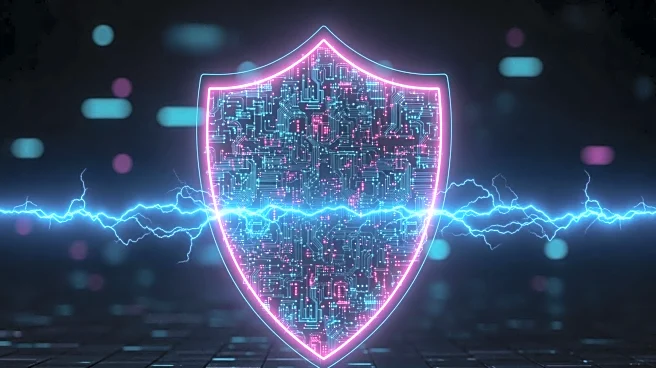What's Happening?
A significant portion of cyberattacks targeting public sector organizations in 2024 were identified as distributed denial-of-service (DDoS) intrusions, primarily conducted by hacktivist groups. According
to Infosecurity Magazine, municipal websites and government ministry portals were the primary targets of these attacks. The European Union Agency for Cybersecurity (ENISA) reported that data-related incidents were the second most prevalent threat, with ransomware variants like RansomHub, LockBit 3.0, and 8Base being common. ENISA emphasized the need for robust cybersecurity measures, including content delivery networks, web application firewalls, multi-factor authentication, and routine data backups, to combat these threats effectively.
Why It's Important?
The rise in hacktivist-led DDoS attacks poses a significant threat to public sector entities, potentially disrupting essential services and compromising sensitive data. This trend underscores the importance of strengthening cybersecurity infrastructure across national, regional, and local government bodies. Effective cybersecurity measures are crucial to maintaining public trust and ensuring the uninterrupted delivery of services. The increasing prevalence of such attacks highlights vulnerabilities that could be exploited by malicious actors, necessitating proactive measures to safeguard public sector networks.
What's Next?
Public sector organizations are likely to intensify their cybersecurity efforts, focusing on implementing advanced security protocols and technologies. ENISA's recommendations may lead to increased investment in cybersecurity infrastructure and training. Government bodies might collaborate more closely with cybersecurity experts to develop comprehensive strategies to mitigate the risks posed by hacktivist activities. Additionally, there may be a push for legislative measures to enhance cybersecurity standards and protect public sector entities from future attacks.
Beyond the Headlines
The ethical implications of hacktivist-led cyberattacks raise questions about the balance between activism and criminality. While some hacktivists claim to act in the public interest, their methods can cause significant harm to public services and data integrity. This situation may prompt discussions on the legal and ethical boundaries of digital activism and the need for international cooperation to address cyber threats.










